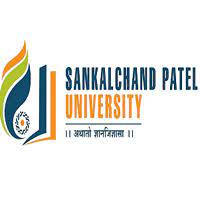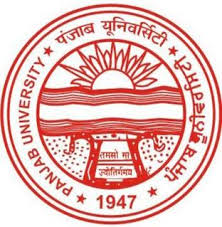A Ph.D. in Microbial Technology is an advanced degree that requires the mastery of knowledge and skills related to the field. The program is designed to prepare students for a career in teaching and research, combining the study of biology, molecular biology, and biotechnology. Typically, this postgraduate degree is three years long and involves coursework in several subjects. Some areas of research include molecular and cellular biology, genomics, virology, and immunology.
This program prepares students for careers in academia and research. Graduates can work in government, industry, or academic research. Those pursuing this degree may pursue positions in clinical microbiology. Those with a Ph.D. in Microbial Technology can expect to work with microbial products, toxins, and disease-causing organisms. They can also pursue careers in teaching, industry, or academia.
A Ph.D. in Microbial Technology prepares students for research, teaching, or government positions. Graduates can also pursue careers in industry and clinical microbiology. The program typically takes about five years to complete. During this time, graduates can work in academia or government. In addition, they can earn a doctoral degree through a collaborative research and training program. There are several advantages to earning a Ph.D. in Microbial Technology.
The Ph.D. in Microbial Technology degree program trains students for research and augments their graphical presentation skills. The program covers many subjects in Biochemistry, Physiology, and Genetics. It also includes courses in Immunology and Virology. The program helps students advance their careers in the field of Microbiology. It can also prepare them for careers in the pharmaceutical, biotech, and genetic industries.
Ph.D. in Microbial Technology Eligibility
Candidates who want to take admission in Ph.D. must have a post-graduate degree in Microbial Technology and its relevant discipline with at least 55% marks from a recognized university and must have passed the national level entrance examination or university level entrance examination. National level entrance exams like UGC NET / UGC CSIR NET / GATE / SLET or University entrance exam consisting of written tests and personal interviews.
Benefits of a Ph.D. in Microbial Technology
Graduates of a Ph.D. in Microbial Technology can work in the food industry, as a Research Scientist, or as a professor at an international university. They also have the option of going into research to publish their own research papers and continue their studies in another area. Ph.D. graduates can earn a DSc degree in a related field after completing their PhDs.
The field of microbial technology is a rapidly expanding field. The scarcity of technologies makes it difficult to advance research on microbial biofilms. In addition to being able to pursue a career in the area, a Ph.D. in Microbial Technology can open doors to new careers and help address some of the most pressing environmental problems facing our world today. This career path can help you advance your career by developing new tools and processes.
With many benefits, a Ph.D. in Microbial Technology is an excellent choice for career advancement. While there are many benefits to pursuing this degree, it is not right for everyone. The field is highly interdisciplinary and requires skills from many different fields. As a result, a Ph.D. in this field is a great way to break into a growing and rewarding field.
The Career Opportunities and Job Opportunities of Ph.D. in Microbial Technology
A Ph.D. in Microbial Technology opens a number of career options. The Master's degree qualifies you for entry-level positions such as laboratory supervisor or instructor at a community college. In addition, a Ph.D. in Microbial Technology qualifies you for advanced roles in science and research, including executive-level positions in government and industry.
The Ph.D. degree in microbiology prepares you for positions in scientific and medical research. You'll have the opportunity to develop new research projects. Some researchers work on the life cycle of microorganisms. Others look at their genetic makeup and environmental factors. In this way, you'll gain a better understanding of how complex organisms live. If you're a researcher, you'll be well-paid.
In the field of microbiology, a Ph.D. in Microbial Technology is typically required to pursue independent research. In microbiology, these researchers specialize in immunology or bacteriology. To pursue a Ph.D., you'll need to complete a program that includes classroom and laboratory work. You'll also need to write a dissertation or thesis to complete your degree. Upon completion of your doctorate, you'll be ready to enter the workforce.
The Master's degree in Microbial Technology also helps you prepare for a variety of jobs. Among the many job opportunities available for a Ph.D. in Microbial Technology, there are several government positions that don't require a Ph.D. You'll be able to work as a researcher, academic, or government official. Besides government employment, you'll also be able to teach undergraduates in your discipline and apply your knowledge and skills to new challenges.
The Future Scope of Ph.D. in Microbial Technology
In recent years, the scope of this program has grown to encompass additional topics. However, the courses have been developed piecemeal, and they continue to draw faculty and student volunteers. The program's future is in question. A course that incorporates both theory and practical aspects of microbiology could be beneficial for the microbiology community, and it could help expand the field. The future of this program could be defined by a committee of researchers interested in the field, as well as by identifying the need for more courses in the area.
Graduates with a Ph.D. in microbiology are prepared for positions in scientific research and medical research. In the future, these researchers can develop new research projects and conduct groundbreaking research. Some will study the life cycle of microorganisms, while others will study their genetic makeup and environmental factors. The knowledge gained from this program can help them better understand the complex lives of other species.
With a Ph.D. in microbiology, students will be well-equipped to hold research positions in scientific and medical fields. These individuals can design new research projects and contribute to the development of innovative technology. In the field of medical and agricultural research, researchers can examine the reproduction cycle of microorganisms and determine whether they are adapted to environments. Their knowledge of life can help in the creation of more advanced, more sophisticated species.
Ph.D. Research Programme duration
The Ph.D. in Microbial Technology course is a minimum of 3 years and a maximum of 5 duration. This depends on the university offering the course.
Fees for research program for Microbial Technology
The average fee for Ph.D. in Microbial Technology degree is between INR 50000 and INR 500000.
 5 Years
5 Years
 PhD
PhD
 Research
Research














 back
back